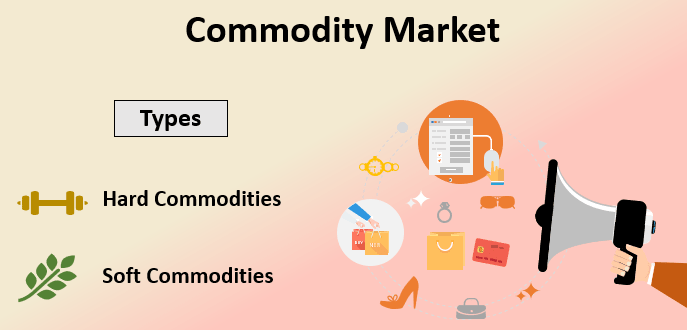The online trading of commodities in India has experienced significant advancements and exponential growth throughout the years. At the present moment, commodities commerce in India encompasses both hard and soft commodities. Hard commodities comprise precious metals, crude oil, and agricultural products such as wheat, soybeans, cotton, and maize, among others. Soft commodities, on the other hand, have a finite shelf life.
Before we continue discussing the platforms where commodity trading occurs in India, it is necessary to examine the most prevalent types of commodity trading in the country.
Types of commodities traded on MCX:
1.Energy: This segment includes crude oil and natural gas.
2. Base metals: This segment includes aluminium, copper, lead nickel, zinc and brass
3. Bullion: Gold & Silver
4. Agricultural commodities: Cardamom, rubber, mentha oil, palmolein, castor seed, black pepper, cotton are included in this segment.
Most traded commodities:
Coffee, gold, corn, petroleum oil, Brent, silver, and wheat are among the most frequently traded commodities in the world. Commodity price fluctuations in one region of the globe typically affect the commodity price in other regions as well.
One illustrative example pertains to crude oil. Although the global community is placing greater emphasis on renewable energy sources, it has yet to completely reduce its reliance on crude oil. The byproducts of crude oil refining include gasoline and diesel. Throughout history, abrupt outbreaks of war in the Middle East and other regions have had an impact on the price of crude oil.
As an additional commodity, gold holds a unique status as a safe refuge against fiat currencies. A significant downturn in global equity markets is frequently accompanied by an abrupt increase in the price of gold. It is regarded as an essential hedge against an equity market decline.
Important commodity exchanges in India:
- Indian Commodity Exchange
- Multi Commodity Exchange
- National Commodity and Derivatives Exchange
- National Multi Commodity Exchange of India

Principles to follow while trading in commodities:
- Understanding the demand-supply dynamic that influences the daily price movement of commodities is essential prior to engaging in commodity trading.
- Knowledge of the actual demand for the commodity on local markets is essential prior to arranging a trade. Moreover, when engaging in commodity trading, such as gold trading, it is critical to comprehend that gold prices worldwide are influenced by global factors, including the yield movement on US Treasury notes.
- One should thoroughly examine the ramifications of the leverage he or she is employing due to the extremely high risk associated with commodity trading.
Also read :- Commodity Vs Forex Trading
Final word:
In India, numerous commodity trading applications enable users to trade agro-products, metals, and equities. Motilal Oswal is favored by a sizable community of merchants because it is one of the top commodity brokers in India, providing unmatched services and an intuitive app interface. Commence commodity trading immediately by establishing an online commodity trading account.






